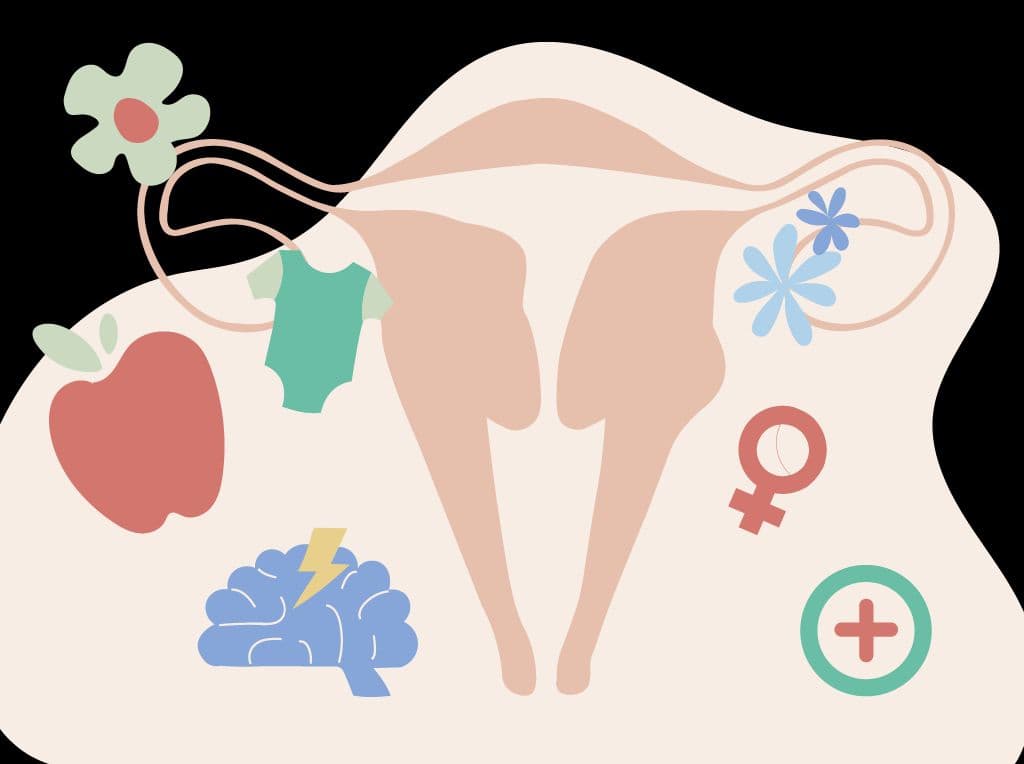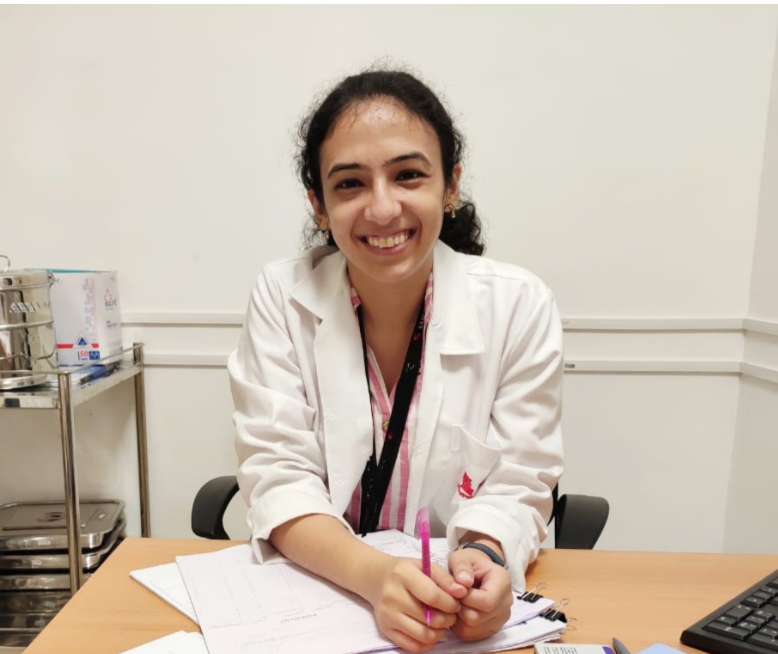This article has been compiled by Vaibhavi Kodnani, a content writer at Proactive For Her.
What is IVF?
In-Vitro Fertilization or IVF is a procedure wherein eggs from a woman’s eggs are fertilized with a man’s sperm in a laboratory to form an embryo. After that, the embryo is implanted in the woman’s uterus to achieve a pregnancy.
When is IVF needed?
Doctors may recommend IVF to couples under the following situations:
- Mild to moderate male infertility
- Female factor infertility
- Cases of unexplained infertility
- Couples requiring donor eggs
- Couples who are unable to conceive after other assisted reproduction procedures
- Women with endometriosis (who have not conceived with routine treatments)
- Women with Polycystic Ovarian Syndrome (PCOS) (who have not conceived with routine treatments)
- Same-sex couples
- Single women who want to have a baby
What are the steps of IVF?
IVF involves several steps.
- Initial consultation and performing tests: The doctor will perform diagnostic tests for infertility. For males, it includes semen analysis. For females, they check the ovarian function, tubal patency and hormonal profile.
2. Downregulation: Your doctor will give you hormone medication to temporarily terminate your natural menstrual cycle.
3. Ovarian stimulation: Next, the doctor will put you on medications to stimulate the ovaries to produce several eggs instead of the usual one egg per month. Fertilization of multiple eggs increases the chances of conception.
4. Ultrasound examination: They will conduct a vaginal ultrasound examination at regular intervals to assess the response of the hormonal injections on your ovaries.
5. hCG injection/ GnRH injection: It is given to trigger the final maturation of the eggs and make them ready for collection, which happens about 34 to 36 hours later.
6. Ovum pick-up (egg collection): You will be given general anaesthesia before starting the procedure. With the help of transvaginal sonography, the doctor will collect the eggs from the ovaries. The entire procedure will take around 15-30 minutes. Depending on the response to the injections, the doctor will determine how many eggs are to be collected. The procedure is mostly painless but you may experience some vaginal spotting and abdominal discomfort which would subside in 1-2 days.
7. Sperm collection: On the day of the egg collection, the doctor will also collect a fresh semen sample from the male partner/donor. Generally, it is recommended to avoid sex and lubricants 3-5 days before the sperm collection procedure to ensure the production of the best semen sample.
8. Fertilisation: After the ovum pick-up and sperm collection, the eggs will be fertilised by the sperm in the laboratory by either standard In-Vitro Fertilization (IVF) or Intracytoplasmic Sperm Injection (ICSI). The next day, the embryologist will examine the eggs for fertilization and the development of the embryo or embryos. If there are more than three well-developed embryos, if need be, it is possible to freeze the others for a later transfer.
9. Embryo transfer: The embryo is transferred 2-5 days after the egg collection. The doctor will transfer the embryo through the cervix into the uterus via a thin, soft plastic tube or catheter. After the transfer is complete, you will be prescribed a course of medications to support the luteal phase - when your uterus gets ready for a possible pregnancy.
10. Pregnancy test: Around two weeks after the embryo transfer, the doctor will do a blood test to check if you are pregnant.
If the test is positive: They will perform a vaginal ultrasound scan a week later to confirm the pregnancy.
If the test is negative: The doctor will repeat the IVF cycle for you.
How long does the IVF procedure take?
On average, one IVF cycle can take around 28 days. But it will vary for every woman depending on the length of their menstrual cycle.
Who cannot opt for IVF?
Under certain circumstances, the pregnancy can be life-threatening for the woman. Your doctor will perform diagnostic tests to assess if you can carry the pregnancy. Otherwise, there are no restrictions.
What is the right age for IVF?
There is no right age for opting for IVF- it will depend on various factors that are causing infertility.
What is the cut-off age for IVF with your eggs?
There is no set cut-off age for the IVF procedure with your eggs. It entirely depends on the woman’s ovarian reserve. The doctor will decide whether you need a donor based on the results of your diagnostic tests. If the test results are in your favour, you and your partner can try the IVF procedure with your eggs and sperms.
You may need to use a donor egg and/ or a donor sperm if:
- You have gone through 3-4 unsuccessful IVF cycles
- The sperm count is not adequate
- The sperms are abnormal
- The female does not have her eggs due to advanced age or other reasons
- The eggs have exhausted due to chemotherapy and radiation therapy
How many eggs will the doctor extract for IVF?
On average, the doctor will extract 10-20 eggs from your ovaries for the IVF procedure. Since it is an expensive and painful procedure, it cannot be done multiple times. The doctor will freeze the excess eggs for the other IVF cycles.
How many embryos will the doctor implant?
Often, an embryo does not get implanted. Even if it does, there is no guarantee that it will grow. Therefore, the doctor implants more than one embryo to increase the chances of pregnancy. But as per the guidelines, not more than three embryos can be implanted. It also increases your chances of having a triplet or twin pregnancy. But, there are chances you may have a singleton pregnancy too.
How soon can you get pregnant after an IVF?
The doctor will conduct a pregnancy test after two weeks of the embryo transfer. If you do not test positive, do not worry. Generally, the first cycle of IVF is never successful. It will take 2-3 IVF cycles for a successful pregnancy.
Do’s and Don'ts for women before an IVF?
Lifestyle changes, focusing on diet and nutrition and stress management can help you have a successful IVF.
Do’s
- Eat a healthy diet: Women preparing their body for an IVF should have a diet rich in folic acid, iron, B vitamins, and omegas. Apart from that, eat all healthy fruits, vegetables, whole grains, and dairy products. Avoid eating foods made of refined carbs and sugars.
2. Reduce stress: The entire process of IVF can be physically and mentally demanding. Practising stress management techniques will help you deal with your emotions, relax your body and increase your chances of becoming pregnant. Yoga and meditation are powerful tools for managing stress. You can also practice your hobbies to de-stress.
Don’ts
- Stop smoking: Nicotine in tobacco is said to prematurely age the ovaries and make the eggs resistant to fertilisation. It is best to kick the smoking habit if you are trying to get pregnant.
2. Do not consume alcohol: Alcohol consumption is not only harmful to the developing fetus, but it also affects the success rate of IVF.
3. Limit caffeine: Excessive caffeine can reduce your chances of pregnancy.
Tips for men before an IVF
Men need to take equal care of themselves to ensure a good sperm count. Smoking, alcohol and drugs can affect sperm quality and count. They should also adopt a healthy lifestyle and eating habits and exercise regularly.
Furthermore, men must reduce heat exposure near their private parts as that can affect their fertility too. Hence, do not keep laptops on the lap, phones in your pocket, do not wear tight undergarments and ensure frequent breaks from work.
What is the success of pregnancy after IVF?
The average success rate of pregnancy through the IVF procedure is 40-60% per IVF cycle. The success rate with 4 IVF cycles is around 90%. But, for every couple, it will be different. Several factors determine the success of pregnancy after IVF:
- Age of the couple: For couples above 35-40 years of age, the success rate decreases from 40-60% to 10-20%.
- Cause of infertility: IVF is a good option for women with blocked fallopian tubes. For those with fewer eggs can go for donor eggs to improve chances of pregnancy. But if a woman has a small uterus, then IVF may not be an option for her.
- Medical comorbidities: Women with diabetes, hypothyroidism or other hormonal disorders need to control their condition before the IVF pregnancy.
Is IVF procedure painful?
Every woman has a different experience with IVF. For some, taking injections for ovarian stimulation might be painful. Even though general anaesthesia is given for the ovum pick up, still some women may experience discomfort and pain after the procedure.
Is IVF procedure safe and recommended?
The IVF procedure is safe but does have a few side effects. Nevertheless, experts recommend it in cases where other methods of assisted reproduction have failed.
Is IVF expensive?
IVF is an expensive procedure. The cost of one IVF cycle starts from 1-2 lakhs and varies from every centre. But apart from the procedure costs, there will be additional expenses of injections, hormonal supplements and other medications before and during the IVF pregnancy. An IVF pregnancy is also a high-risk pregnancy, so there are increased chances of an early delivery. The baby may require an intensive care nursery. Hence, the couple needs to be financially secure before opting for an IVF pregnancy.
Bottom Line
If you have not achieved a pregnancy through natural methods and other assisted reproduction techniques, do not lose hope. IVF is a good option for you. Be patient as it can take 3-4 IVF cycles for a successful pregnancy. Since it is expensive, make sure you have enough funds and savings for the procedure.
Disclaimer : This information is provided for educational purposes and should not be construed as medical advice. Please consult with your healthcare practitioners before undertaking any changes in your diet or adding supplements.
ProactiveForHer is a digital clinic for women, offering accessible, personalized, and confidential health-care solutions. We offer products and services for out-patient health concerns of Indian women, across their lifetime - from puberty to pregnancy to menopause. To know more on the sexual and reproductive health of women, visit https://www.proactiveforher.com/

